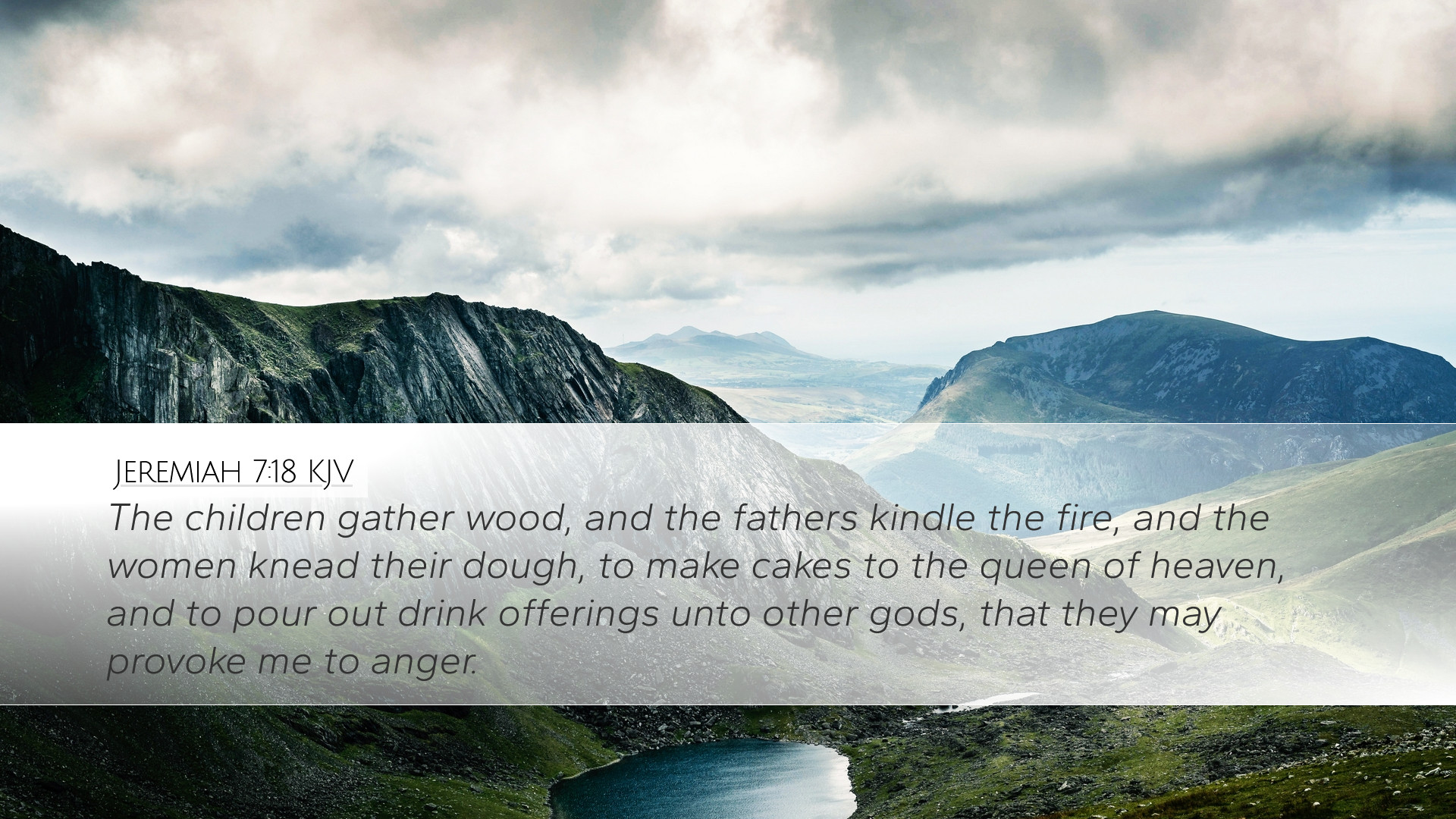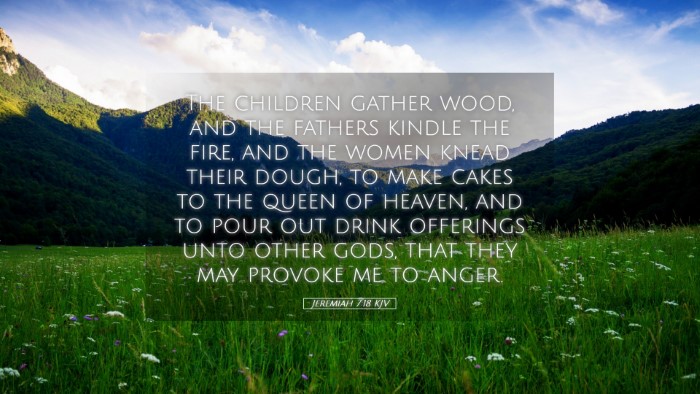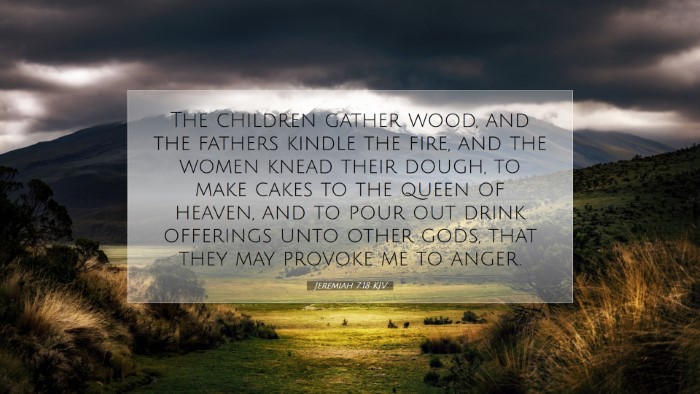Commentary on Jeremiah 7:18
Jeremiah 7:18 states: "The children gather wood, and the fathers kindle the fire, and the women knead their dough, to make cakes to the queen of heaven, and to pour out drink offerings unto other gods, that they may provoke me to anger." This verse presents a striking depiction of the idolatrous practices that had infiltrated the worship of Yahweh among the people of Judah. This commentary draws insights from various public domain sources, including Matthew Henry, Albert Barnes, and Adam Clarke, to explore the depth of meaning within this scripture.
Contextual Setting
To fully grasp the implications of Jeremiah 7:18, it is essential to consider the historical context. Jeremiah prophesied during a time when Judah was steeped in idolatry and moral decay. The temple became a symbol of false security, where the people believed that they could continue in sin while still maintaining a semblance of worship. The passage serves as a profound warning against such complacency.
Exegesis of the Verse
- Gathering Wood: The act of gathering wood symbolizes the collaborative effort of the community in the practice of idolatry. Henry notes that roles are delineated for different family members, indicating the pervasive nature of this sin.
- Kindling the Fire: Barnes emphasizes that kindling the fire is an essential part of the ceremonial practices directed towards the Queen of Heaven, which may refer to a goddess like Ishtar. This highlights the misdirected fervor of the people.
- Kneading Dough: The preparation of cakes for this idol shows a domestic involvement in idolatry, suggesting that familial and cultural pressures led to collective disobedience against God.
- Provoke Me to Anger: The phrase underscores the gravity of their actions. Clarke indicates that these offerings were not merely cultural but provoked divine wrath, showing how such practices were fundamentally against the covenant relationship with God.
Theological Reflections
This verse surfaces several theological implications:
- Idolatry's Pervasiveness: The text illustrates that idolatry can infiltrate every aspect of life, suggesting that the hearts of the people were profoundly turned away from God.
- The Role of Family: The participation of the entire family unit in these practices speaks to the importance of spiritual leadership within homes. The influence and responsibility of fathers, mothers, and children are critical in nurturing faith.
- Divine Jealousy: God's anger towards idolatry reminds us of His jealous nature; He desires exclusive worship and fidelity from His people.
Practical Applications
The insights from Jeremiah 7:18 can serve as a guide for contemporary believers:
- Evaluate Worship Practices: Just as the Israelites were warned against their idolatrous practices, modern believers must evaluate their worship and avoid anything that detracts from the glory of God.
- Family Discipleship: Engaging in family worship and spiritual practices is vital. Each family member plays a part in maintaining a God-centered home.
- Guard Against Complacency: Like the people of Judah, we must guard against the temptation to take God’s grace for granted. Authentic repentance and a heart positioned towards God are paramount.
Conclusion
Jeremiah 7:18 serves as a critical reminder of the dangers of syncretism and the latent idolatry that can arise even among God's chosen people. Insights from Matthew Henry, Albert Barnes, and Adam Clarke provide depth to our understanding, encouraging believers to reflect on their practices and relationships with God. The call to turn away from idolatry and return wholeheartedly to the worship of the one true God remains pertinent for all generations.


